|
||||||||||||||||||
|
|
||||||||||||||||||
|
| ||||||||||||||||||





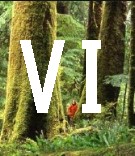



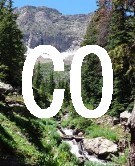  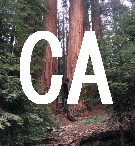
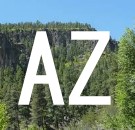
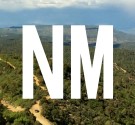
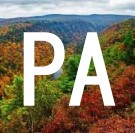





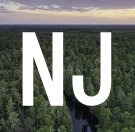
| ||||||||||||||||||

LeRoy Fish
1943 - 2002Eulogy for an Ecologist
On the 20th of March, 2002, a Wednesday, retired professor and ecological consultant LeRoy Fish proceeded to the barn located on his Oregon farm to take care of some daily chores. He never left. Jacqueline, his wife, found him in his beloved shop where he apparently succumbed to the effects of the congestive heart failure for which he was undergoing treatment. He was 59.
From his boyhood days in western Oregon, Fish saw himself as a naturalist; he went on to earn a Ph.D. in wildlife ecology at the University of Washington in 1972. He then moved to Alabama to teach, living on a farm north of Huntsville until 1977. Returning to the land of his birth, he spent his last fifteen years near Blachly, Oregon, where he maintained a small tree farm.
Many of Fish's former colleagues, business associates, and students, in addition to family and friends, were shocked and saddened by the news of his untimely death, as would be expected in the wake of a career that included stints in higher education and ecological research. No doubt those individuals who knew him possessed distinctive, though perhaps somewhat predictable, sets of memories forged as a result of shared interests and interactions with a life that might otherwise be perceived as conventional. However, LeRoy Fish was not an ordinary man.
In a particularly exceptional way, Fish's research interests transcended traditional academia. Those who mourned his death included an eclectic (and some would say eccentric) group, members of the virtual community of investigators known as the Bigfoot Field Researchers Organization (BFRO), for LeRoy Fish was one of a handful of scientists willing to examine evidence in support of the existence of the undocumented species known as the sasquatch or bigfoot.
His better known bigfoot research contemporary and friend, anthropologist Dr. Grover Krantz (recently deceased), from the state of Washington, received much more media attention than did Fish. Krantz, however, was essentially an independent researcher, a maverick on a lonely personal quest. Colorful and controversial, Krantz did much to raise the level of awareness of both the public and the scientific community to bigfoot evidence.
Fish, on the other hand, was committed to a diversified yet structured team approach to addressing questions pertaining to the sasquatch, perhaps a reflection of his ecological training and perspectives. Never one to seek the limelight, Fish worked largely behind the scenes as a curator in the BFRO to assist the organization in developing its mission to document and analyze evidence or, as he put it, "to help build research capabilities." He saw field studies as an important component of the BFRO's functions and was always willing to offer ideas and to participate as he was able in field activities designed to collect evidence supportive of the ultimate objective: to "describe a new species to biological science."
His professional approach to research had a significant impact, although a thorough assessment of those contributions will take time and will necessitate the evaluations of a broader base of his bigfoot research colleagues than is intended by or possible for this writer. The following is simply a brief tribute to the values LeRoy Fish espoused in the course of intermittent correspondence with one investigator in the BFRO.
Education, for example, was something Dr. Fish valued. The BFRO receives hundreds of questions and comments from the public, submissions that generally do not pertain to bigfoot sightings. Various curators and investigators sometimes respond to these submissions, although many go unanswered. Dr. Fish rarely displayed an interest in sending responses himself; he was usually too occupied with other matters. However, one exception pertained to a question received from a hopeful researcher.
The writer wanted to work in the bigfoot field, a sentiment shared by many young people. Whereas leaders of other bigfoot organizations may have seen such a contact as a recruiting opportunity, Dr. Fish, ever the educator, encouraged the would-be investigator to attend an undergraduate program in Biology, Anthropology, or Wildlife. He added, "My choice would be Idaho State University. Link up (with) Dr. Jeffrey Meldrum, become his star student, work in his laboratory and assist in the museum. Then go to the University of Idaho for a graduate degree in Wildlife Biology at the Laboratory for Ecological and Conservation Genetics. Study non invasive bear detection techniques with Dr. Lisette Waits using DNA forensic methods as applied to large mammals. By then you will be well prepared." Clearly, Dr. Fish saw education as one of the keys to addressing the bigfoot phenomenon.
Excellence was another point of emphasis with Dr. Fish. Examples are too numerous to recount, but suffice it to say that he felt that everything done by representatives of the BFRO should exhibit and reflect quality. He saw part of the mission of the BFRO as being one of persuasion and, in his mind, one could not be persuasive without displaying excellence in communication skills, logic, and documentation.
Enthusiasm is a characteristic often applied to him. That is not to say that he was careless or less than critical in evaluating information, assessing data, or considering evidence; far from it. However, he had an air of excitement about him, an energy, that often communicated itself through his messages.
Encouragement was the natural partner of enthusiasm with Dr. Fish. He sometimes concluded emails with an injunction or challenge such as "Progress!" It was like he was saying, "Come on, let's go, there's work to be done and we're the ones to do it!" As an example, consider some of what he said to BFRO participants prior to a Fall 2001 Oklahoma expedition:
My personal message, as a professional Wildlife Biologist and BFRO Curator, is intended to encourage each of you to recognize the threshold of opportunity that lies directly ahead ... I will predict that some important new sasquatch information will result with top notch documentation. Make sure that you are a part of that discovery.
In order to discover that new slice of knowledge, each person must be especially attentive to their immediate surroundings, listen to the forest and its tell tale inhabitants. Notice the small things, learn the art of seeing evidence that most outdoors persons pass by unawares. Relax and enjoy the outdoors; keep your equipment at ready, take the sleep needed, do not become ill, and build on each other and each other's ideas.
The Ouachita Expedition to Oklahoma mountains has the full support and encouragement of the BFRO. We are proud that you are undertaking this field expedition.
Such are the words of one who instills enthusiasm and a long term commitment to the effort to learn more about the sasquatch.
Ethics is another subject of concern confronted by LeRoy Fish. He believed there were right ways and wrong ways to do things and had strong opinions regarding the responsibilities of members of the BFRO to cooperate with each other in a professional manner.
"Epiphany" (an illuminating discovery; a revealing scene or moment) can also be used to apply to LeRoy Fish. Although he said he had followed the bigfoot phenomenon since 1958 with an open mind and was excited about the evidence that had accumulated in the last 40 years, his experience at Skookum Meadow represented a watershed event in his life. The things he saw and heard solidified his sense of the existence of the species and the validity of much of the evidence and helped him to determine that it was now "time for me to make a greater effort to discover more of sasquatch-bigfoot biology in cooperation with other interested persons." He did just that until last week.
LeRoy Fish, the wildlife ecologist, valued education, pursued excellence, exhibited enthusiasm, offered encouragement, espoused ethical conduct, and experienced an epiphany. He established a worthy example for each member of the BFRO to emulate.